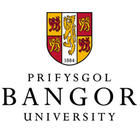- News and articles
- Find usIDP AustraliaIDP BahrainIDP BangladeshIDP CambodiaIDP CanadaIDP ChinaIDP EgyptIDP GhanaIDP Hong KongIDP IndiaIDP IndonesiaIDP IranIDP JordanIDP KenyaIDP KoreaIDP KuwaitIDP LebanonIDP MalaysiaIDP MauritiusIDP Middle EastIDP NepalIDP New ZealandIDP NigeriaIDP OmanIDP PakistanIDP PhilippinesIDP Saudi ArabiaIDP SingaporeIDP Sri LankaIDP Taiwan, ChinaIDP ThailandIDP TurkeyIDP UAEIDP VietnamIDP Corporate
- Social
- English
- Where we operate
- Courses
- Scholarships
- IELTS
- About IDP
- Arrival services
- Arrival services
- Money transfer
- Student health cover
- Student banking
- Accommodation
- News and articles
- Find us
- Find us
- Find nearest IDP offices
- IDP Australia
- IDP Bahrain
- IDP Bangladesh
- IDP Cambodia
- IDP Canada
- IDP China
- IDP Egypt
- IDP Ghana
- IDP Hong Kong
- IDP India
- IDP Indonesia
- IDP Iran
- IDP Jordan
- IDP Kenya
- IDP Korea
- IDP Kuwait
- IDP Lebanon
- IDP Malaysia
- IDP Mauritius
- IDP Middle East
- IDP Nepal
- IDP New Zealand
- IDP Nigeria
- IDP Oman
- IDP Pakistan
- IDP Philippines
- IDP Saudi Arabia
- IDP Singapore
- IDP Sri Lanka
- IDP Taiwan, China
- IDP Thailand
- IDP Turkey
- IDP UAE
- IDP Vietnam
- IDP Corporate
- Social
- Language Switcher
- IDP Education /
- Colleges and Universities /
- United Kingdom /
- Bangor University /
- MSc Wildlife Conservation

MSc Wildlife Conservation
At BANGOR UNIVERSITY
Location
United Kingdom
Qualification
Masters Degree (Taught)
Duration
1 Year(s)
Next intake
29 September 2025
Entry Score
6.0
IELTSCourse info
You will explore how technology, research, behavioural change, economic policies, government regulations, and a robust scientific approach can be combined into a unified approach to tackle the world's greatest threats to wildlife. Prifysgol Bangor University has a strong focus on conservation research and enjoys close links with local, national, and international organisations that employ conservation scientists, helping us to ensure that the MSc Wildlife Conservation is relevant and up to date. Bangor is surely one of the most ideally located universities for you to study wildlife conservation - with access to a wide range of natural environments ranging from the coast to the varied landscape of Parc Cenedlaethol Eryri (Snowdonia National Park).
Careers
Graduates form this course will possess valuable transferable skills as well as subject-specific knowledge. During the course you will have given assessed presentations, designed podcasts, been interviewed, submitted written work on a variety of topics and in different formats, worked to achieve targets within agreed deadlines both on your own and as part of larger teams, conducted literature and web-based information searches, conducted quantitative analyses, and will have engaged in practical work and research relevant to your discipline.
The MSc Wildlife Conservation includes training in the use of geographical information systems, data handling and analysis to understand patterns and differences, and a whole range of practical skills in the field and in the lab, from population genetics practicals to observing wild animals in the field. Filed visits and study tours provide opportunities to engage with professionals working on the front line of conservation, which will allow you to specifically relate classroom teaching to commercial practice. You will also have access to specific careers guidance from the University's Employability Service.
- Scholarships View all scholarships
- Internships
Entry requirements for Bangor University
IELTS: 6.0 (with no element below 5.5) is required.
TOEFL iBT - 75 overall , (L-17, R-18, S-20, W-18)
Application Deadline
The application deadline isn't available Speak to an IDP counsellor for more detailed information
Further information
If you aren't eligible for the above entry requirements, you might ant to explore pathway options at Bangor University. If you want to find out more, speak to our counsellors.
THE World Ranking
401st / 1250
THE World RankingWhat our students think
We’ve haven’t received any reviews for this institution yet.
Recommended for you
- THE World Ranking:251
- Masters Degree (Taught)
- Norwich , United Kingdom
- Next intake:09/2025
- Entry Score: IELTS 6.0
- GBP21200 (2025)
- THE World Ranking:601
- Masters Degree (Taught)
- Coventry , United Kingdom
- Next intake:01/2025
- Entry Score: IELTS 6.5
- GBP18600 (2025)
- THE World Ranking:157
- Masters Degree (Research)
- Newcastle upon Tyne , United Kingdom
- Next intake:04/2025
- THE World Ranking:157
- Masters Degree (Research)
- Newcastle upon Tyne , United Kingdom
- Next intake:04/2025
- THE World Ranking:136
- Masters Degree (Research)
- Sutton Bonington , United Kingdom
- Next intake:02/2025
- Entry Score: IELTS 6.5
- GBP30200 (2025)
- THE World Ranking:136
- Masters Degree (Research)
- Sutton Bonington , United Kingdom
- Next intake:02/2025
- Entry Score: IELTS 6.5
- GBP30200 (2025)
- THE World Ranking:157
- Masters Degree (Research)
- Newcastle upon Tyne , United Kingdom
- Next intake:04/2025
- THE World Ranking:201
- Masters Degree (Research)
- Belfast , United Kingdom
- Next intake:12/2024
- Entry Score: IELTS 6.0
- GBP23850 (2025)
Your action plan
Step 1
Shortlist your courses
Choose the best three courses you’re most likely to pursue.
Step 2
Check your eligibility
Get an instant in-principle offer for courses with the IDP FastLane tag.
Step 3
Apply through IDP Live
Fill out the form once and use it to apply to multiple courses.
How does IDP FastLane work?
With the FastLane 'Offer in Principle', you'll know in minutes if you'll be accepted!
Select an institution and course
Create your academic profile
Submit your application for an 'Offer in Principle'
Your chosen institution(s) will send you a decision in minutes!
Get ready to apply with an expert counsellor




